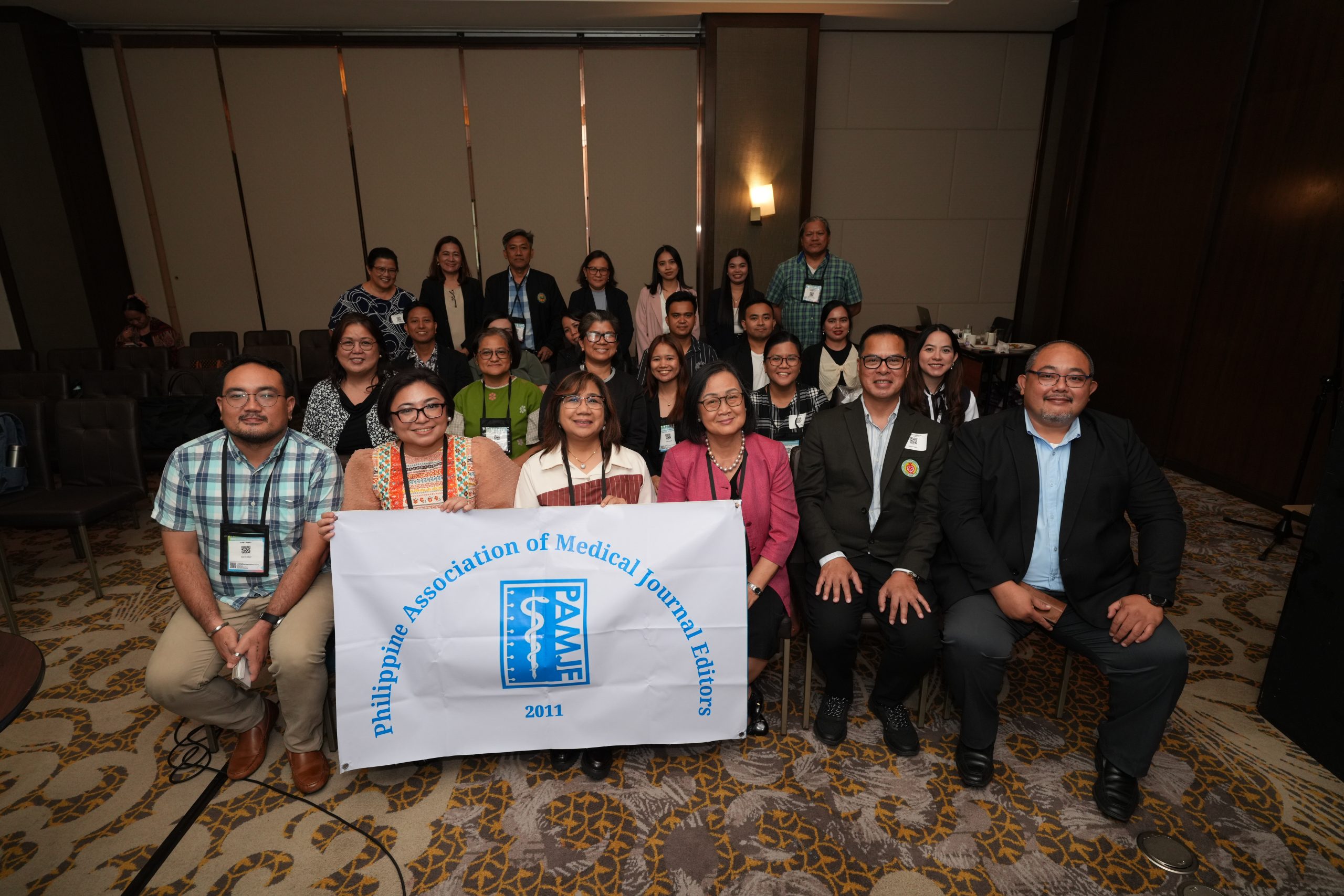NEWS AND UPDATES
PAMJE Forum 2025: AI Revolutionizing Medical Research Writing

The Philippine Association of Medical Journal Editors (PAMJE) sparked discussions on the transformative role of artificial intelligence (AI) in medical research writing during the PAMJE Educational Forum and General Assembly on March 17, 2025 in Pasay City. Held as a part of the DOST-PCHRD 43rd Anniversary, the event bannered the theme, “Building a Healthier and Wealthier Future: Advancing Research Utilization for Greater Impact.”
DOST-PCHRD Executive Director Dr. Jaime Montoya shared his insights on the potential of AI in enhancing the quality of research writing. “We must use all available tools such as AI to increase accessibility of research results,” he said. “Equipping our researchers with the knowledge to integrate AI in research writing while ensuring ethics is a step forward for research publishing,” he added.
Leading the discussion, Mr. Aian Rosales, Chief Executive Officer of 101 Health Research, introduced the background of AI and its potential applications in research. He highlighted cutting-edge tools such as Generative AI for content creation, Agentic AI for workflow automation, and DeepResearch for rapid information processing – underscoring their efficiency gains while stressing the vital need for human oversight and AI literacy.
“Researchers and editors must possess basic AI literacy to harness its benefits while remaining vigilant against risk-errors, bias, and technical issues,” Mr. Rosales emphasized.
Showcasing AI-driven advancements, Mr. Rosales cited the HERDIN AI project, which integrates AI and IT solutions to streamline the extraction of key research features and optimize the uploading process.
Focusing on AI’s ethical implications, Dr. Jacinto Blas Mantaring III of the Philippine Health Research Network presented different AI applications including machine learning, natural language processing, expert systems, computer vision, speech recognition. He underscored machine learning as the most pivotal, allowing computers to derive insights from data without explicit programming.
Dr. Mantaring outlined AI’s acceptable uses in research, such as data processing and analysis, literature review and summarization, data simulation and modeling, and image and signal analysis. However, he cautioned against unethical practices including data fabrication and falsification, plagiarism and misattribution, ethics violations, bias amplification, deceptive AI-generated peer review, and automated writing without human oversight.
“Instead of merely detecting AI-generated research, we must foster a culture of responsible research conduct,” Dr. Mantaring concluded.
Following the presentations, PAMJE President Dr. Cecilia Maramba-Lazarte delivered a comprehensive report on PAMJE’s 2024 accomplishments and future initiatives. The event reinforced PAMJE’s commitment to elevating the quality of health journal publishing in the Philippines through educational discussions, knowledge-sharing, and professional networking.




